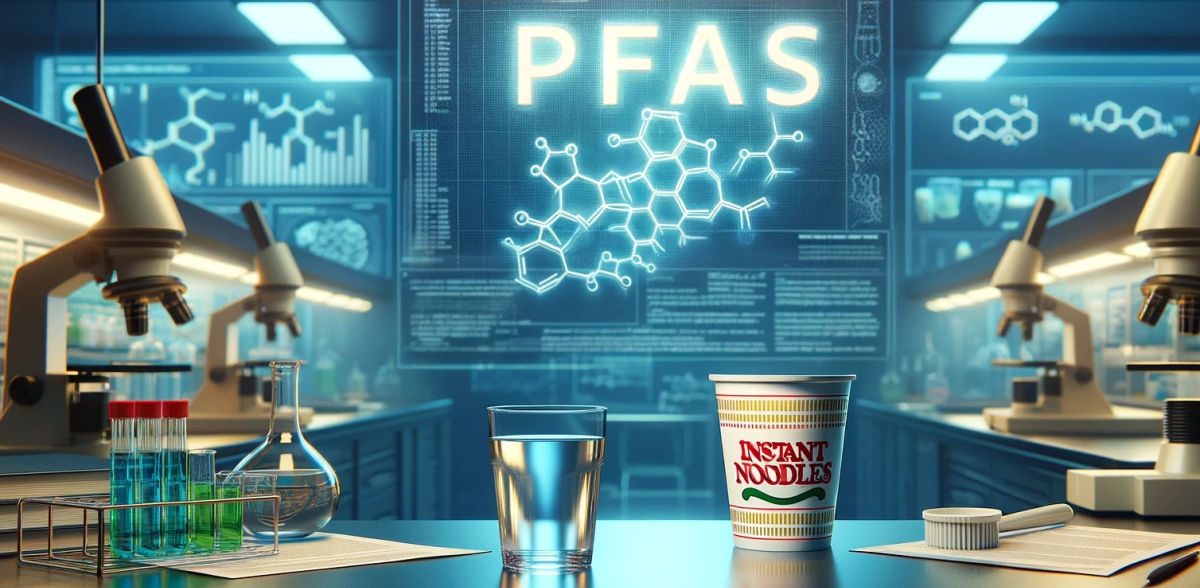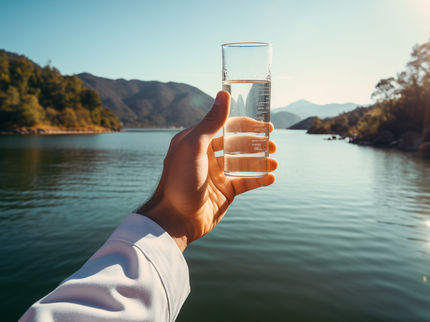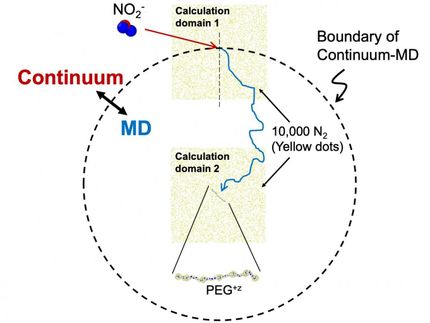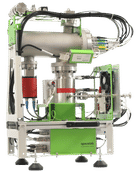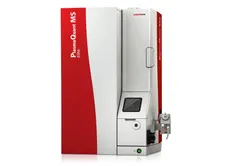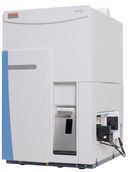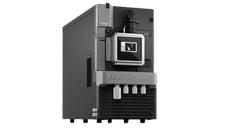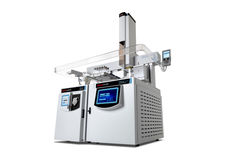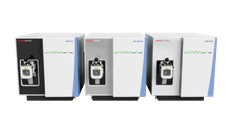Detect 'forever chemicals' in under 3 minutes
New lab-based method to detect traces of PFAS from food packaging material, water and soil samples
PFAS have earned the name “forever chemicals” with good reason — the man-made compounds, which can take thousands of years to degrade and are found in everything from grease-resistant food packaging to water-repellent clothing, have made their way into nearly half the U.S. tap water supply.
Now, in a study featured in Elsevier’s Journal of Hazardous Materials, New Jersey Institute of Technology chemists have demonstrated a new lab-based method to detect traces of PFAS from food packaging material, water and soil samples in just three minutes or less.
Researchers say their approach could significantly speed up efforts to study and address the bioaccumulation of PFAS in the environment, including more than $2 billion of EPA grant funding from President Biden’s Bipartisan Infrastructure Law for states to conduct water quality testing and treatment for the emerging contaminants.
“There are thousands of different species of PFAS, but we’ve yet to understand the extent of their distribution in our environment because the current testing methods are costly and time-consuming, taking hours for sample preparation and analysis in some cases,” said Hao Chen, the study’s corresponding author and NJIT chemistry professor. “What our study demonstrates is a much faster, sensitive and versatile method that can monitor our drinking water, land and consumer products for contamination in minutes.”
Chen and colleagues say the new method — involving an ionization technique for analyzing the molecular composition of sample materials called paper spray mass spectrometry (PS-MS) — is 10-100 times more sensitive than the current standard technique for PFAS testing, liquid chromatography/mass spectrometry.
“PFAS can be ionized and rapidly detected by a high-resolution mass spectrometer, which gives a clear view of each PFAS species present and the degree of contamination down to a parts-per-trillion (ppt) level,” explained Chen. “For more complex matrices like soil, we’ve applied a related method called desalting paper spray mass spectrometry (DPS-MS) that washes away salts which normally suppress the ion signal of PFAS. Together, they greatly improve our ability to detect these compounds.”
“Our limit of detection for PFAS is roughly 1ppt. For context, this amount has been likened to a drop of water in 20 Olympic-sized swimming pools,” added Md Tanim-Al Hassan, the paper’s first author and Ph.D. chemistry student at NJIT.
In tests, the team was able to detect PFAS in one minute or less by analyzing pieces of various food packaging materials directly, including microwave popcorn paper, instant noodle boxes, as well as fry and burger packaging from two multinational fast food restaurant chains.
The analysis revealed traces of 11 different PFAS molecules — including common types that have been linked to increased cancer risk and immune system suppression, such PFOA (Perfluorooctanoic Acid) and PFOS (Perfluorooctanesulfonic acid).
In their water analysis, the team detected traces of PFOA in samples of local tap water in under two minutes, while finding no traces of PFAS in samples taken from the university’s filtered fountain water.
“The EPA has already proposed to establish maximum contamination levels (MCLs) for six PFAS in drinking water nationwide, and PFOA and PFOS are among them,” said Mengyan Li, study co-author and NJIT associate professor of environmental sciences. “This analytical method could facilitate more intensive screenings for toxic PFAS that may be needed under such a proposal to protect the safety of our water supply.”
Using DPS-MS, the team also identified two species of PFAS from as little as 40mg of soil in under three minutes.
Already, the team’s rapid detection method is being tested for use alongside cutting-edge techniques for remediating PFAS that are being developed at NJIT’s BioSMART Center.
“Remarkably, in our lab we were able to couple this analytical method to a novel degradation catalyst, which degrades 98.7% of PFAS in drinking water samples within three hours,” said Wunmi Sadik, study co-author and chair of NJIT’s Department of Chemistry and Environmental Sciences. “This work may have a national impact, but the immediate effect will be felt in the Northeast area. Roughly 10% of 9.2 million New Jersians have high levels of perfluorooctanoic acid in their drinking water compared to the national average of 1.9%.”
Chen says the advance could also have a swift impact on the monitoring of consumer products, from cosmetics and medicine to fresh and processed foods. The team plans to demonstrate the method’s capabilities for air monitoring as well.
“Near term, this could be extremely useful for ensuring the safety of food products … it may allow farming produce to be more efficiently monitored for PFAS contamination for example,” explained Chen. “Our method may also advance the study of airborne PFAS in a similar way to what we’ve demonstrated in this study, which would further help us address this widespread environmental issue.”
Original publication
These products might interest you
See the theme worlds for related content
Topic World Mass Spectrometry
Mass spectrometry enables us to detect and identify molecules and reveal their structure. Whether in chemistry, biochemistry or forensics - mass spectrometry opens up unexpected insights into the composition of our world. Immerse yourself in the fascinating world of mass spectrometry!

Topic World Mass Spectrometry
Mass spectrometry enables us to detect and identify molecules and reveal their structure. Whether in chemistry, biochemistry or forensics - mass spectrometry opens up unexpected insights into the composition of our world. Immerse yourself in the fascinating world of mass spectrometry!
